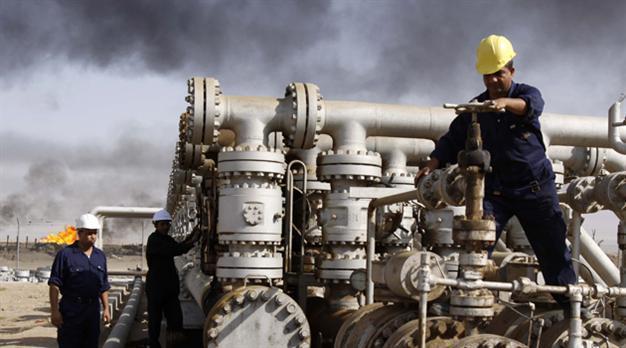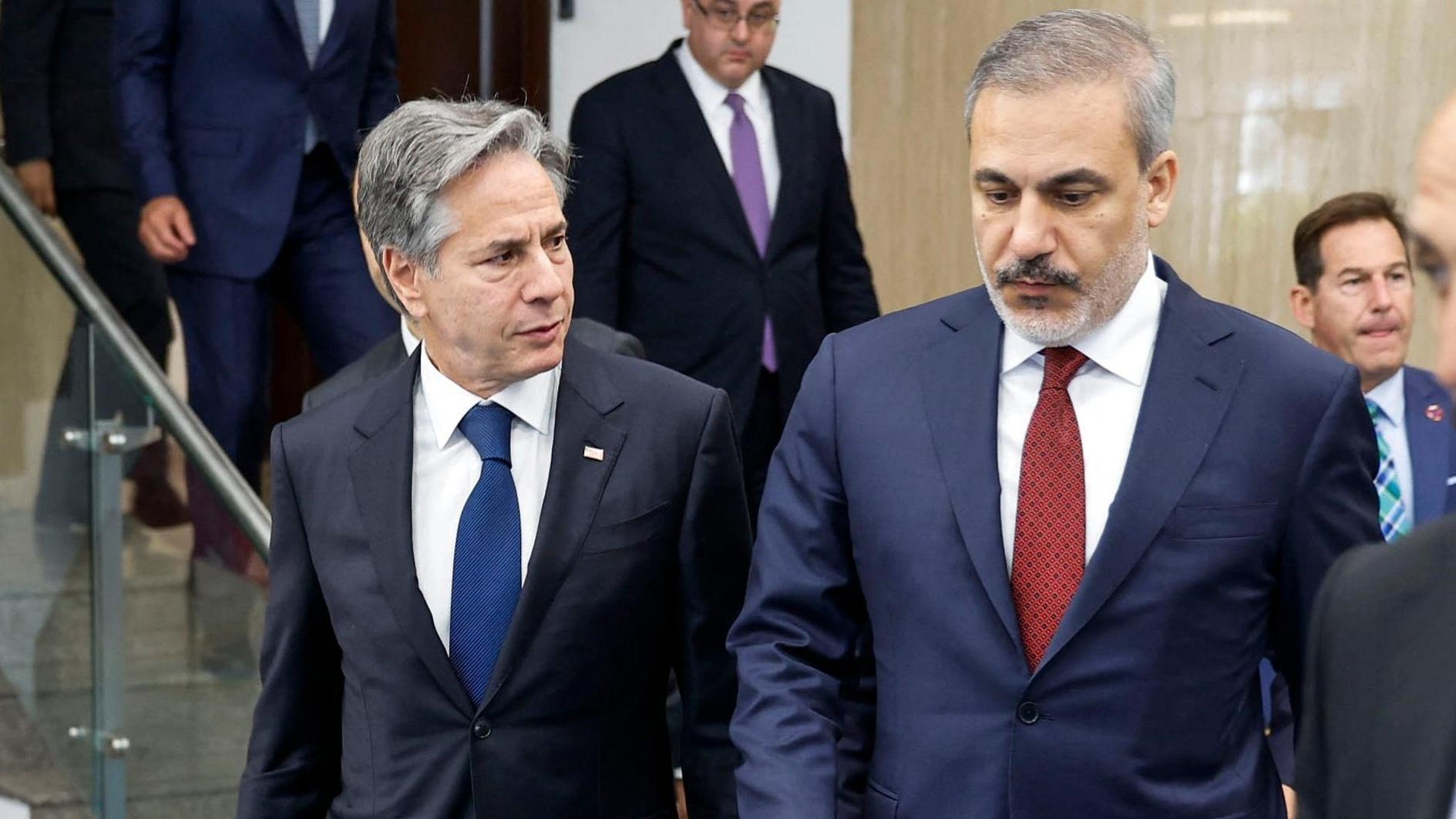Regional rivalry stirs oil rush to north Iraq
ISTANBUL - Hürriyet Daily News

AP photo
With one-third of Iraq’s high-quality oil reserves buried under northern Iraqi soil, northern Iraq’s lucrative oilfields have driven both small and large oil companies to risk angering Iraq’s central government by entering into deals with the Kurdistan Regional Government (KRG). Closer ties with Western companies and the possibility of exporting oil to further markets via Turkey are encouraging the KRG to operate even more independently of the central government.The 45 billion barrels of proven reserves, according to BP’s annual estimates, have enticed the world’s largest oil players, including Exxon Mobile, Total, Chevron and Gazprom, to make deals with the KRG despite the clear risks emerging from the lingering dispute between the autonomous administration in Arbil and the central Baghdad government, which has objected to being bypassed by recent deals.
While these four large companies are among the world’s top 10 oil firms, the wealth of oil in the northern Iraqi region is also attracting relatively small players, with around 40 foreign companies drilling in the oil territory, despite the absence of a long-awaited hydrocarbon law, which may put an end to revenue-sharing problems between Baghdad and Arbil.
Click here to view the northern Iraq energy map. (PDF)
Baghdad has so far requested the U.S. government’s help with solving its problems with American companies inking northern Iraqi deals. U.S. companies are the most active in northern Iraq’s oilfields.
With 143 billion barrels, Iraq accounts for 8.7 percent of all of the world’s known oil. The OPEC member produces nearly 2.4 million barrels per day.
Compared to the rest of the country, northern Iraq’s mere 300,000 barrels of production per day seems very small. However, the KRG’s oil minister, Ashti Hawrami, hopes to boost the figure to 1 million barrels per day by 2014, and 2 million five years later. This forecast has drawn companies of all sizes to the region.
The tension between the regional government and the Shiite-dominated central government under Prime Minister Nouri al-Maliki is not limited to the oil issue. Ankara’s relations with Baghdad are also far from being perfect, as Turkey’s energy trade with Arbil is rapidly growing.
Ties between Turkey and Iraq became strained at the end of last year, when Iraq tried to arrest Tariq al-Hashimi, one of its Sunni vice presidents, who was then given refuge by Ankara. The Kurdish Democratic Union Party (PYD), along Syria’s border with Iraq, is another concern for Turkey, due to the organization’s sympathy toward the outlawed Kurdistan Workers’ Party (PKK).
Energy-hungry Europe is looking for ways to cut its dependence on Russian oil with more fuel from the Middle East, and Turkey stands at a crucial point, which could allow Arbil to export its fuel directly to the West without the intervention of Baghdad. Turkey’s recent natural gas deal with Azerbaijan, the $7 billion Trans Anatolia Project, is raising Europe’s hopes for diversifying its energy supply, as exports from Iran, another large supplier, have fallen to near zero due to the ongoing sanctions against the Islamic republic.
















